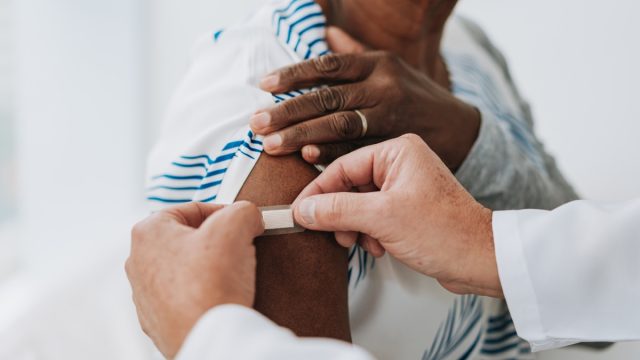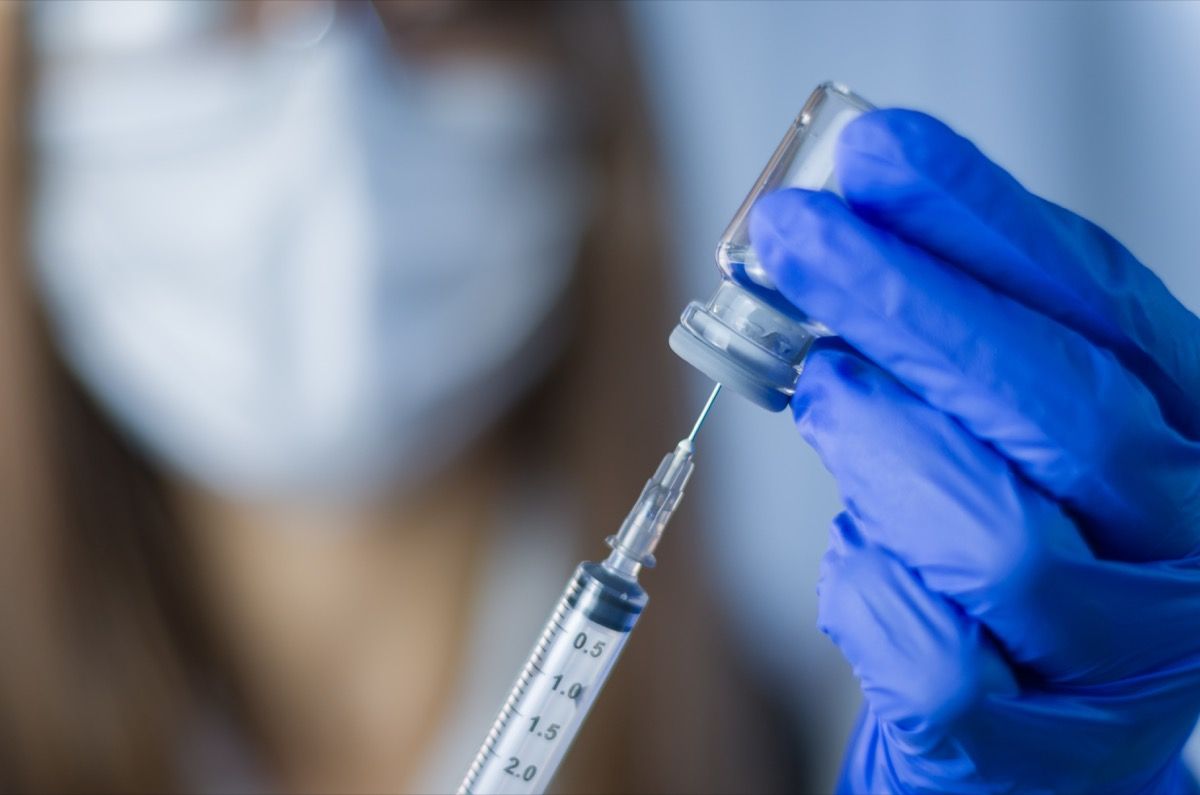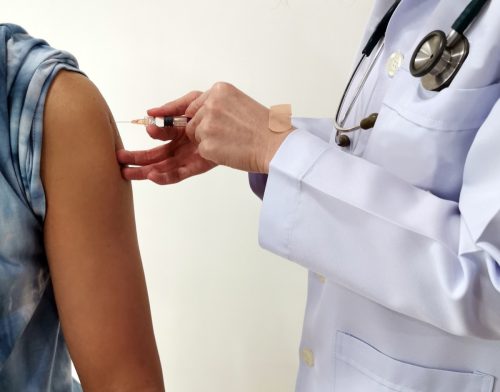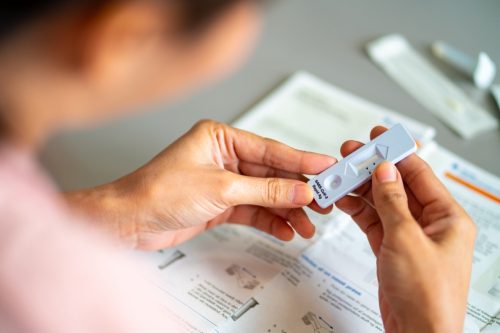CDC Says You Need Your COVID Booster Today at the Latest—Here’s Why

COVID is no longer at the forefront of our minds. In fact, some of us may not even remember the last time we got vaccinated against the virus. But COVID is still spreading, and the best way to protect yourself is to stay up-to-date on your shots. Right now, the Centers for Disease Control and Prevention (CDC) is sending a new warning about the timing for the latest iteration of the vaccine. Read on to find out why the CDC says you need your COVID booster today at the latest.
RELATED: Doctor Reveals COVID Symptoms in Patients Who Haven’t Gotten a Fall Booster.
Most people haven’t gotten the newest COVID booster yet.

The CDC, alongside the U.S. Food and Drug Administration (FDA), gave the green light for a new COVID booster in September. The shots feature an updated vaccine formula from Pfizer and Moderna that is better suited to protect against “currently circulating variants” of the virus, according to the FDA.
But at the end of October, it was reported that only 7 percent of U.S. adults and 2 percent of children had gotten boosted with the new versions of the COVID vaccines—a rate that Camille Kotton, MD, of Harvard Medical School, admitted was “abysmal,” the Associated Press reported.
Now just two weeks later, CDC Director Mandy Cohen, MD, told CBS News that less than 10 percent of the country has received the newly updated vaccine. And if they want it, they should act quickly.
RELATED: Doctor Reveals the New COVID Variant Symptoms You Can See on Your Face,
The CDC says you need to get it today at the latest to be protected at Thanksgiving.

If you’re part of the majority of people in the U.S. who have not gotten the updated vaccine, now is the time. In a new interview with CBS News, Cohen said that two weeks before Thanksgiving is the best window to get vaccinated in order to protect yourself and your family for the holiday.
“We know we’re going to see more flu starting to circulate, and more COVID, so right now is a great time for you to get vaccinated,” she said. “That way, your body can build up its protection ahead of the holiday season.”
But it’s not just your COVID booster that you need. The CDC and other experts say the two-week run up to Thanksgiving is also the best time to get vaccinated for the flu and RSV.
“While it’s never too late to get your COVID or flu shots, getting vaccinated sooner rather than later will provide increased protection ahead of holiday celebrations, the start of winter, and peak respiratory disease season,” Massachusetts state epidemiologist Catherine Brown told WWLP.
RELATED: The Most Accurate Time to Take a COVID Test, New Study Reveals.
The agency warns that COVID is still circulating.

We may technically be out of the pandemic, but that doesn’t mean COVID is gone completely. As of Oct. 28, the CDC’s latest data indicates that there is currently a 9 percent increase in test positivity, a 1.2 percent increase in emergency department visits, and a 2.5 percent increase in deaths due to COVID in the U.S.
“I know folks want to leave COVID in the rear-view mirror, but unfortunately it is still here and is still causing folks to get very sick, even die,” Cohen told CBS News, adding that while COVID, the flu, and RSV are all expected to be circulating at the same time this winter, how widespread they are could depend on vaccination levels.
Thanksgiving caused a COVID surge last year.

The past three winters have proved to be a troublesome time for COVID, and they all shared one similarity: Virus activity surged right after the Thanksgiving holiday.
In 2022, the country saw COVID hospitalizations reach their highest level in three months just a week after Thanksgiving, with more than 35,000 patients needing treatment, according to the The Washington Post. COVID hospitalizations had been mostly flat through the fall, up until the days leading into Thanksgiving.
And while “things are, relatively speaking, pretty good” right now compared to the last few years, William Hanage, PhD, an associate professor of epidemiology at the Harvard T.H. Chan School of Public Health and associate director for the School’s Center for Communicable Disease Dynamic, told The Harvard Gazette that there is still reason for concern.
“We do have a reasonable caution around respiratory virus syndrome season in general. For context, COVID has killed more than 100,000 Americans this year already. That is twice what would be considered a ‘bad’ flu year. So, thinking about the infectious diseases from which we tolerate more than 10,000 deaths, the answer was really only flu, up until COVID,” Hanage said.
He continued, “Flu would cause between 20,000 and 50,000 deaths—60,000 in a bad year. Last year was a bad flu year, incidentally. Now we’ve got something on top of that, a burden that our healthcare system has to shoulder, and it will have knock-on consequences.”
RELATED: For more up-to-date information, sign up for our daily newsletter.
Best Life offers the most up-to-date information from top experts, new research, and health agencies, but our content is not meant to be a substitute for professional guidance. When it comes to the medication you’re taking or any other health questions you have, always consult your healthcare provider directly.